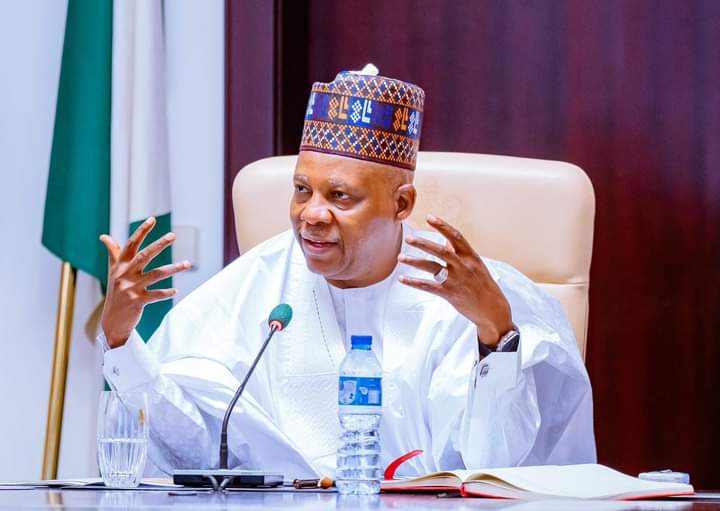Vice President Kashim Shettima on Monday decried low penetration of digital financial services among women, which is only 23 per cent compared to 43 per cent for men.
Shettima, represented by Dr Aliyu Modibbo, Special Adviser to the President on General Duties, said this during the inaugural Development Partners Roundtable on Economic and Financial Inclusion held at the Presidential Villa, Abuja.
He said the situation was driven by socio-economic barriers such as low income, limited education and restricted access to financial tools like credit and insurance.
According to him, women in the northwest and northeast are particularly disadvantaged.
Shettima, therefore, implored development partners and other stakeholders to bridge systemic inequalities and foster an inclusive, unbiased financial system that would benefit all Nigerians irrespective of gender or geography.
He warned that Nigeria’s vision of building a one-trillion dollar economy by 2030 would remain an illusion except the private sector and development partners were fully engaged.
“The task before us, then, is clear: to bridge these systemic inequalities and foster an inclusive, equitable financial system that benefits all Nigerians, regardless of gender or geography.
“We have come this far because we are continually assessing the extent of economic and financial inclusion in Nigeria.
“However, the results of this assessment reveal some disturbing gaps that demand our urgent attention.
“One such gap is the low penetration of digital financial services among women – only 23 per cent compared to 43 per cent for men,” he said.
Shettima, however, expressed optimism that the inaugural roundtable would provide a fertile ground for meaningful conversation.
He added that meaningful conversation would “pave the way for a future where every Nigerian is a significant part of the nation’s financial data.
“This roundtable is yet another important opportunity to harness our collective potential and chart a sustainable path forward.
“It is designed to provide a holistic view of the obstacles impeding economic and financial inclusion in Nigeria.
“As we engage in discussions today, I invite all of us to join hands, collaborate, and align our efforts in crafting lasting solutions.
“Whatever we do as a government, we know it cannot materialise fully unless we work together with you – our development partners, the private sector, and all stakeholders committed to progress.”
He noted that discussions on the state of the economy and financial inclusion in Nigeria had become a matter of priority at the National Economic Council (NEC).
“The committee will report to the NEC on a quarterly basis to ensure that the integrated framework we have established not only implements the Aso Accord effectively but also achieves its ambitious goals,” he said.
Earlier, Mr Lawrence Ewhrudjakpo, the Deputy Governor of Bayelsa State, who spoke on behalf of the subnationals, commended President Bola Tinubu for giving Nigeria visionary leadership.
He said the successes being recorded by the nation in the economic and other sectors showed that Nigeria was on the right track.
He maintained that rural communities should be well accommodated in the scheme of things to enhance inclusive development.
Mr Idi Maiha, the minister of Livestock Development, called for effective strategies to include more farmers, petty traders and others in the financial inclusion programme in order to achieve its goals.
Dr Yusuf Sununu, the minister of State for Humanitarian Affairs, said the ministry played a big role in providing financial intervention and inclusion.
He added that the ministry would ensure social justice, environmental protection and growth through its social intervention programmes like Conditional Cash Transfer and School Feeding.
He assured beneficiaries of accountability and transparency in the implementation of all the programmes of the ministry.
Dr Nurudeen Zauro, the Technical Adviser to the President on Economic and Financial Inclusion, said the roundtable was a defining moment for the financial inclusion strategy of the Nigerian government.
“Today’s gathering is a defining moment in our collective journey towards creating a more equitable, inclusive and prosperous Nigeria.
“In this hall, we have stakeholders comprising individuals and institutions who are united by a shared commitment to transforming lives through inclusive, economic and financial systems in Nigeria,” he said.









